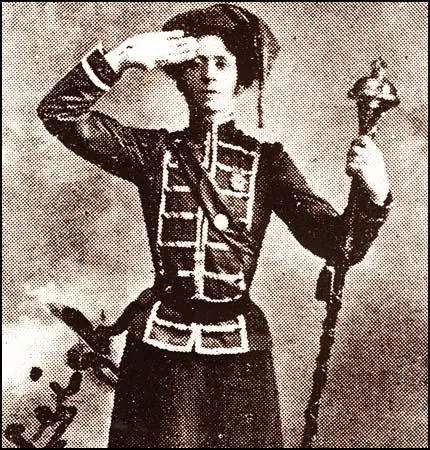In 1912 the Irish Home Rule Bill was passed by the Parliament of the United Kingdom that would allow Ireland home rule, meaning that Ireland could govern itself within its own lands. This act de-centralized the UK government. In the fight for Ireland’s rights to govern themselves, women were notably excluded from being able to participate in their country’s politics and were denied the right to vote. When this decision was made, the Irish Women’s Franchise League (IWFL) decided to take matters into their own hands and protest.

On the morning of June 12th, a group of women activists from the IWFL began to smash the windows of government buildings within Dublin such as the General Post Office, the Custom House, and the Dublin Castle. Hanna Sheehy Skeffington, one of the founding members of the IWFL smashed over nineteen panes of glass before she was arrested by the police. She and seven others were comprehended by the authorities and taken to Mountjoy Jail.
When the Liberal Prime Minister came down to Dublin to consult on home rule, Gladys Evans and Mary Leigh, two activists from Britain, followed him down to Dublin where Mary Leigh threw a hatchet at the political leader. The two women were arrested and as a result Hanna and many other suffragettes went on a hunger strike to protest the arrests.

Many of these suffragettes went to prison for their actions and faced backlash from the public via “a strong anti-feminist wave of emotion” (Kilfeather pg. 176) that followed. Due to societal pressure and threats of jail time the IWFL lost members and was challenged by public derision. However, defeat is not the moral of this story. When Hanna Sheehy Skeffington and the seven other activists went to jail, it left a “deep impression” on the other suffragettes and women. Sheehy Skeffington recounts that “when prison followed, and later hunger strike, a deeper note was struck; many hitherto protected comfortable women got glimpses into the lives of those less fortunate, and became social rebels” (Kilfeather, pg 176).
The fact that these women fought for their beliefs and were not deterred by potential consequences, such as Sheehy Skeffington losing her job as a teacher as well as going to prison, is hugely admirable and necessary. We can see that through their dedication and perseverance that more and more women became aware and joined the fight to gain their rights. These suffragettes remind us the importance of never giving up in the face of hardship because through the fight a spark is passed onto others.
